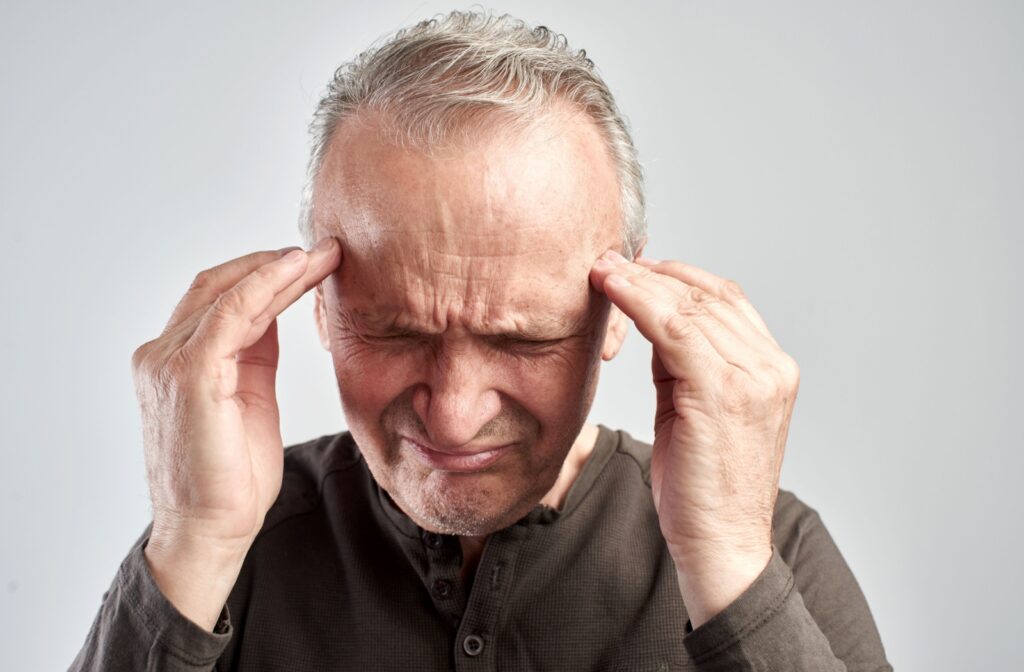Older adults can face some challenges regarding their health as they age, which often requires additional care. Older adults may also experience hallucinations that can be particularly distressing.
Hallucinations in older adults can result from cognitive decline, a condition called Charles Bonnet Syndrome, medication side effects, illness, hearing and vision loss, delirium, dehydration, sleep deprivation, and mental health. Memory care in senior living can provide personalized care for older adults with cognitive impairments.
Understanding Hallucinations
In essence, hallucinations are perceptions or sensations that appear real but are created by the mind. They can involve hearing, seeing, feeling, tasting, or even smelling things that aren’t present.
For older adults, hallucinations can be a perplexing and frightening experience. It can also result from seeing or hearing someone who has recently passed as part of grieving, making it vital for caregivers and family members to approach the situation with empathy and insight.
Types of Hallucinations
Hallucinations come in many types and can be simple or non-formed, such as seeing lights, colors, shapes, and indiscreet objects. They can also be complex or formed hallucinations, such as the following:
- Auditory hallucinations: Hearing voices or sounds that have no real source.
- Visual hallucinations: These are perhaps the most recognized forms of hallucination, in which someone sees something that’s not real, such as a person or animal.
- Olfactory hallucinations: Smelling something that is not there.
- Gustatory hallucinations: Tasting something that a person did not eat.
- Tactile hallucinations: These involve the sensation of touch.
- Somatic hallucinations: These can affect the entire body, causing unreal sensations such as that of bugs crawling on the skin.
Common Causes of Hallucinations in Seniors
Understanding the myriad causes of hallucinations in older adults is crucial for effective diagnosis and management. Common causes include:
Cognitive Decline
A myriad of medical conditions can be the root cause of hallucinations in older adults, a few of which include:
- Dementia: A significant proportion of those with dementia might experience hallucinations, particularly as the condition progresses and damages parts of the brain involved in sensory processing.
- Parkinson’s disease: This neurodegenerative disorder can lead to hallucinations, often as a side effect of medications taken for managing the disease.
- Alzheimer’s disease: Disturbing hallucinations can result from complex changes occurring in the brain of Alzheimer’s patients.
Charles Bonnet Syndrome
Charles Bonnet Syndrome is a condition that occurs in people who are partially or severely blind and leads to visual hallucinations. Because of vision loss in these individuals, especially in older adults, the brain creates images that aren’t there.
Medications
Sometimes, the medications prescribed to aid older adults with their ailments can have unintended side effects, including hallucinations, such as high blood pressure drugs, medication to treat Parkinson’s disease, and some antibiotics. Healthcare providers must review prescriptions regularly to minimize these risks.
Illnesses
Severe illnesses such as liver failure, kidney failure, HIV/AIDS, and brain cancer can cause hallucinations.
Hearing & Vision Loss
Hearing and vision loss in older adults increases the risk for brain hyperactivity, potentially resulting in hallucinations. The brain’s attempt to interpret the dwindling input from these senses can sometimes manifest in auditory or visual hallucinations. Examples of conditions in hearing and vision loss include otosclerosis and glaucoma.
Delirium
Acute confusion states, known as delirium, can trigger both visual and auditory hallucinations.
Dehydration
Dehydration is common in older adults. When the body lacks enough water, it can cause brain malfunction, leading to lethargy and hallucinations.
Sleep Deprivation
Sleep deprivation from sleep disorders can cause hallucinations. Hallucinations can occur when a person wakes or falls asleep.
Mental Health Conditions
Factors like anxiety and depression can cause periodic hallucinations. Social isolation, significant changes in the environment, or the loss of a loved one can also contribute to the occurrence of hallucinations. While these hallucinations are usually brief, knowing the underlying cause can help stop the hallucinations.
Coping Strategies & Support
Understanding and patience are key. Here are a few strategies that may prove beneficial when caring for a loved one experiencing hallucinations:
- Open communication: Encourage discussions about the hallucinations without dismissing them, which helps in understanding their nature and triggers.
- Medical consultation: Seeking medical advice to address underlying causes or to adjust medications.
- Creating a supportive environment: Keeping living spaces well-lit, minimizing noise pollution, and keeping familiar objects around can help alleviate sensory triggers of hallucinations.
- Professional support systems: Psychiatrists, psychologists, and support groups can offer invaluable assistance in coping with hallucinations.
Personalized Care for Individual Needs
Navigating through the complexities of hallucinations in older adults calls for a blend of understanding, compassion, and action. It’s about aiming for solutions that restore peace and comfort to those affected. Early detection and a supportive network can significantly improve the quality of life for older adults experiencing hallucinations.If a loved one has cognitive impairment, contact The Legacy at Long Meadow to learn how our memory care program can support and care for them based on their current and evolving needs.


